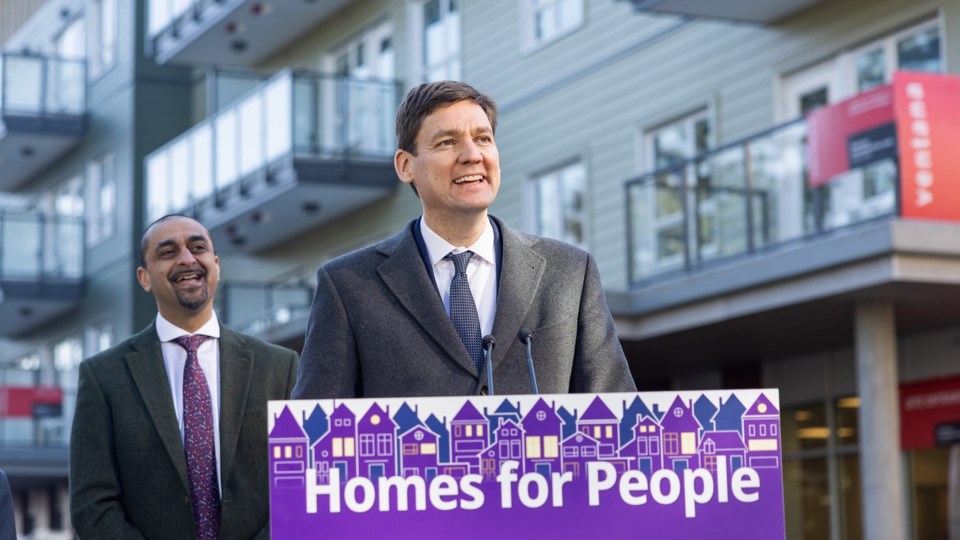If anything can rival the surprising status of the Â鶹´«Ã½Ó³»Canucks, it must be that of the BC NDP. A half-year from an election, the script wasn’t supposed to play out this way.
When Premier John Horgan stepped down in 2022, most everyone believed the party would take several steps back in popularity. It hasn’t happened.
When the health-care lineups lengthened, it didn’t come about.
When the housing supply failed to materialize, it failed to occur.
When $10-a-day childcare didn’t blossom, it wasn’t fatal.
When chronic repeat offenders weren’t kept off the streets, when the 10-digit deficit resurfaced, when accusations arose of antisemitism in the ranks, the poll command ought to have buckled and evaporated. Not really.
Even if its numbers aren’t what they were, its prospects are plumper as an emergent three-party presence takes hold in the province.
Typical of this Teflon government was the recent dissection by the Business Council of British Columbia (BCBC) of the vaunted CleanBC plan’s pain for our economy. The BCBC didn’t have to conduct any of its own research on this – the government’s own numbers told the tale – but it ought to have been a loitering odour and a campaigning pinpoint as we approach the election. We’ll see.
It takes quite the craftiness for any government to actually shrink the size of an economy, but the NDP crew appears to have relished the task as it seeks leadership on climate change. Trouble is, we pay the price for front-running. Consider that by 2030, the government’s own numbers show the B.C. economy will be $28.1 billion smaller. We will be back to a 2013-sized economy. We trade nation-leading economic performance for world-leading green plans.
Yet as an NDP insider told me: “I can agree with the assessment, but it doesn’t matter to the public right now. It’s not costing us votes.”
Indeed, Premier David Eby is prepared to make a meal on contentious issues like the ill-timed 23-per-cent increase April 1 of the carbon tax. He is in a small political cohort – seven premiers, including one Liberal, have called for the increase to be cancelled, and Conservative Leader Pierre Poilievre has turned his axe-the-tax sights on him.
The provincial tax used to be revenue neutral in B.C. but in lockstep with the federal version has taken on a role for income redistribution. And why not? The NDP knows the public loves, even is addicted to, any government that furnishes rebate cheques. That would be particularly powerful now when inflation and interest rates have made affordability the top concern. In B.C. that’s meant not only the carbon dividend for more families than not, but windfalls for low-income families, small businesses, drivers, hydro customers and energy savers.
Now, it’s not entirely clear sailing here. An Angus Reid Institute survey released last week suggested just as many people (51 per cent) do not support the BC NDP as do. Half of the province is calling for a change, yet voter intentions are primarily in the government’s camp, in part because it now rules with the emerging benefit of a second serious opponent to split the non-NDP vote: the BC Conservatives. Last week’s Mainstreet poll even indicated a wipeout of the BC Liberals now rebranded as BC United, with the Conservatives draining their followers to add to their own and breathe a bit down the NDP necks.
The question is how enduring that Conservative surge is. A huge benefit for the NDP is that it’s the only party without an identity issue. Voters are having trouble understanding who the United and Conservative parties represent – the once-mighty former one is wounded by that, the once-teensy latter one is boosted.
In case it needs mentioning, the BC Conservatives are not the provincial version of the front-running federal Conservatives, but never underestimate the impact of under-information. (Poilievre will not campaign for either; he wants both of their constituencies.)
The Reid survey had an eerie None of the Above quality to it. Nearly half of respondents said their vote choices weren’t about supporting a party but really about blocking the others. And while the BC NDP were the preferred party in handling the challenges of affordability and health care – the two top issues as a campaign looms – on four of the five top issues nearly seven in 10 respondents said it was doing a bad job.
It is worth recalling the Â鶹´«Ã½Ó³»Province’s 2013 picture of then-NDP leader Adrian Dix on the front page, noting he could “kick a puppy” and still win. Following a terrible leaders’ debate for him, in the campaign’s last 10 days half of Christy Clark’s vote came out of the woodwork.
Could that dynamic of party overconfidence and underestimated public discontent surface to topple Eby? It’s a devil-you-know situation. At least for now.
Kirk LaPointe is a West Â鶹´«Ã½Ó³»columnist with decades of experience in Canadian media.

